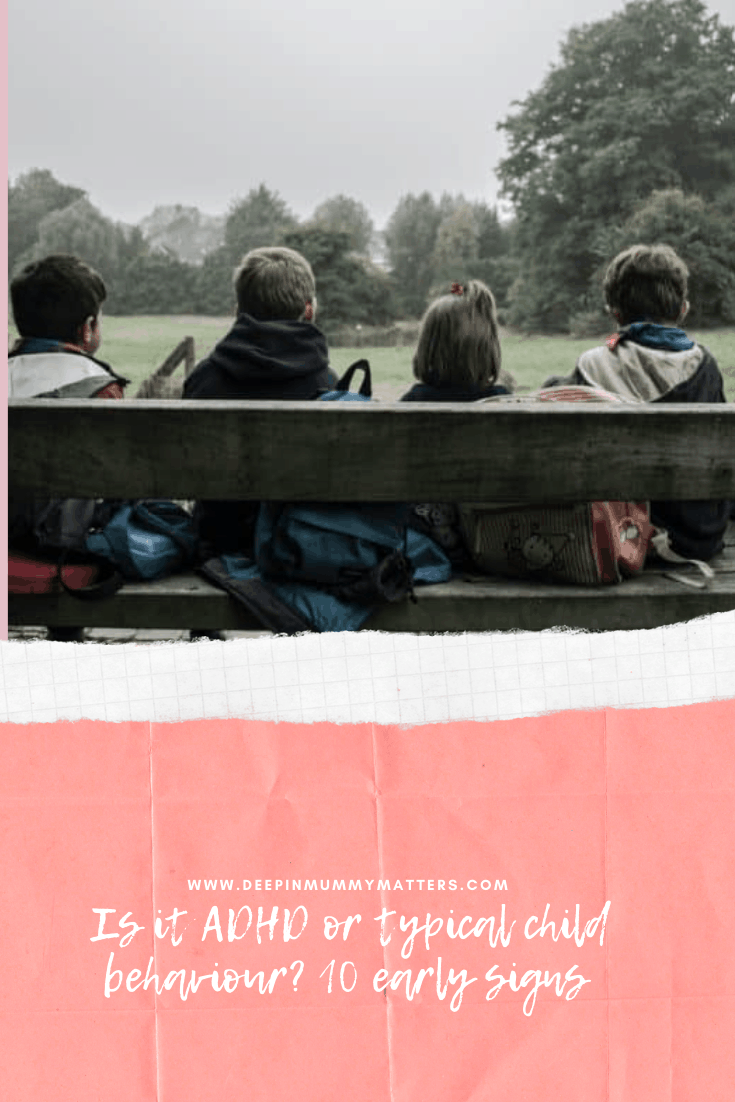Parents who suspect their child may have Attention Deficit Hyperactivity Disorder (ADHD) may find themselves asking this question frequently. Today, we review early ADHD symptoms and the importance of early, kid-friendly intervention.
Recognising the signs
Parents should be mindful not to believe the myths and misinformation about ADHD. Simply being inattentive or unable to focus does not mean a child has ADHD. The complexity in identifying and diagnosing ADHD behaviour requires a trained and licensed professional.
ADHD is broken down into 3 subtypes: Primarily Inattentive, Primarily Hyperactive/Impulsive, or a combination of both. For children 16 years of age or younger, if they have 6 or more of the symptoms as indicated below, they meet the general qualifications to be tested for ADHD.
Symptoms should only be counted if they have been present for at least 6 months, and the child’s developmental level should be considered. Parents should especially note symptoms that are present in more than one setting.
Inattention symptoms
- Frequently distracted easily
- Frequently forgetful in daily activities
- Frequently has trouble organizing tasks and activities
- Frequently makes careless mistakes in school or activity tasks or does not pay attention to detail
- Frequently struggles to hold attention on tasks or fun activities
- Frequently leaves schoolwork, chores, or tasks unfinished, losing focus or getting sidetracked easily
- Frequently loses items, including things needed for daily tasks and activities (i.e., glasses, school supplies, phone, keys)
- Frequently avoids, dislikes, or is reluctant to do tasks requiring mental effort over a long period of time (i.e., schoolwork)
- Frequently does not seem to listen, even when spoken to directly
Hyperactivity and Impulsivity symptoms
- Frequently leaves the seat when expected to remain seated
- Frequently fidgets, taps, or squirms
- Frequently runs or climbs inappropriately
- Frequently interrupts or “butts in” to others’ conversations and activities
- Frequently is “on the go”
- Frequently has difficulty with playing or doing fun activities quietly
- Frequently talks excessively;
- Frequently blurts answers to questions before the question has been fully asked
Having your child evaluated

Evaluations are a multi-step process, including (but not limited to):
- An interview with parents to determine the child’s history and learn any relevant family history.
- Assessments conducted through tests or interactions to discover how your child learns and what they know
- Observing your child in their educational setting to see how they interact with the environment and others
Other health assessments may be necessary to understand the obstacles your child faces fully. Parents have the option of going through their local school district to have their child evaluated or getting an independent assessment.
Parents interested in arranging evaluations themselves may wish to consider using neuropsychological evaluation services. These specialized services have time and resources that public school evaluators may not have access to, especially during the pandemic. They can complete assessments that may otherwise require multiple professionals and appointments through school resources and bring kid-friendly at home ADHD evaluation practices. Getting evaluated at home may be especially helpful for children particularly stressed by the pandemic. Free online ADHD tests can also help identify symptoms and learn more about the disorder.
The importance of early intervention
ADHD presents children with many challenges, leading them to struggle more emotionally than their peers. ADHD is a life-long condition, meaning that the sooner children are diagnosed and provided with additional supports and coping mechanisms, the more likely they are to succeed academically and beyond.
People with ADHD are more prone to accidents and injuries than peers, tend to have low self-esteem, and are at increased risk of risky behaviour and substance abuse. People with ADHD are also more likely to have other conditions, such as other learning disabilities, mood, anxiety, and behaviour disorders, and autism spectrum disorders. Early intervention and support can make drastic differences in outcomes for children with ADHD.



